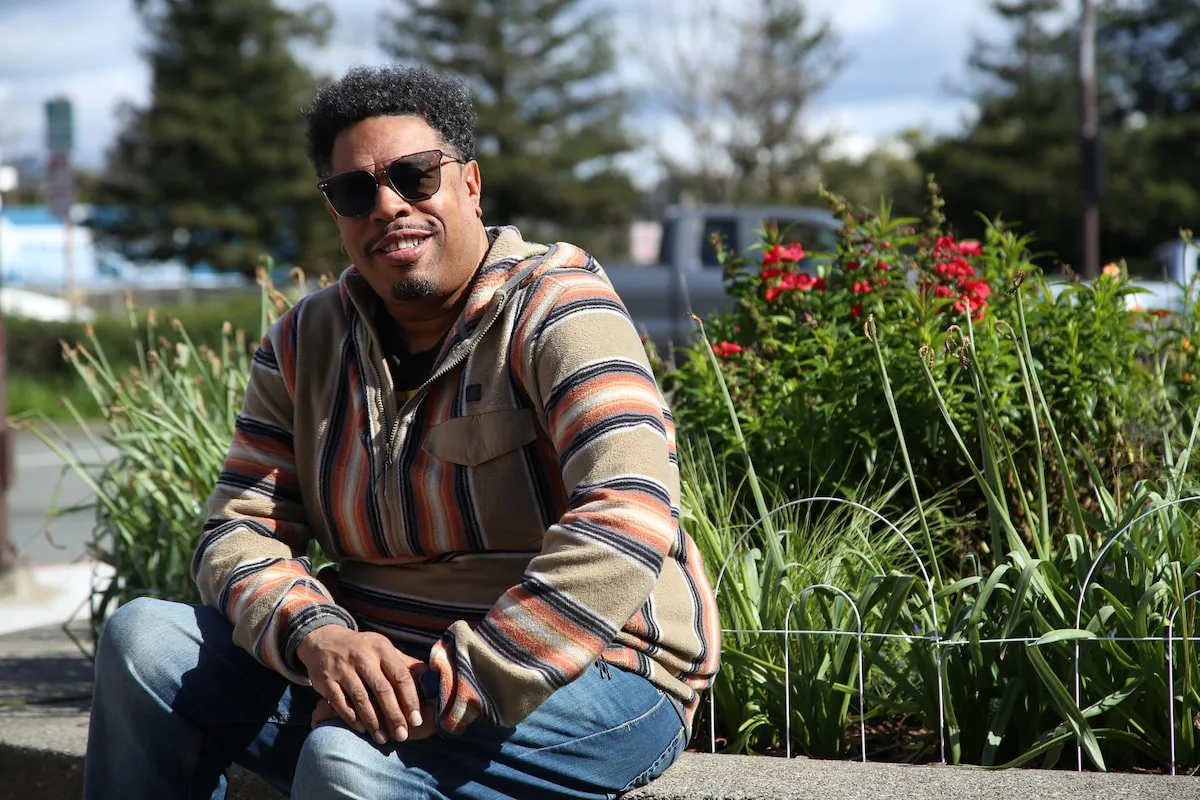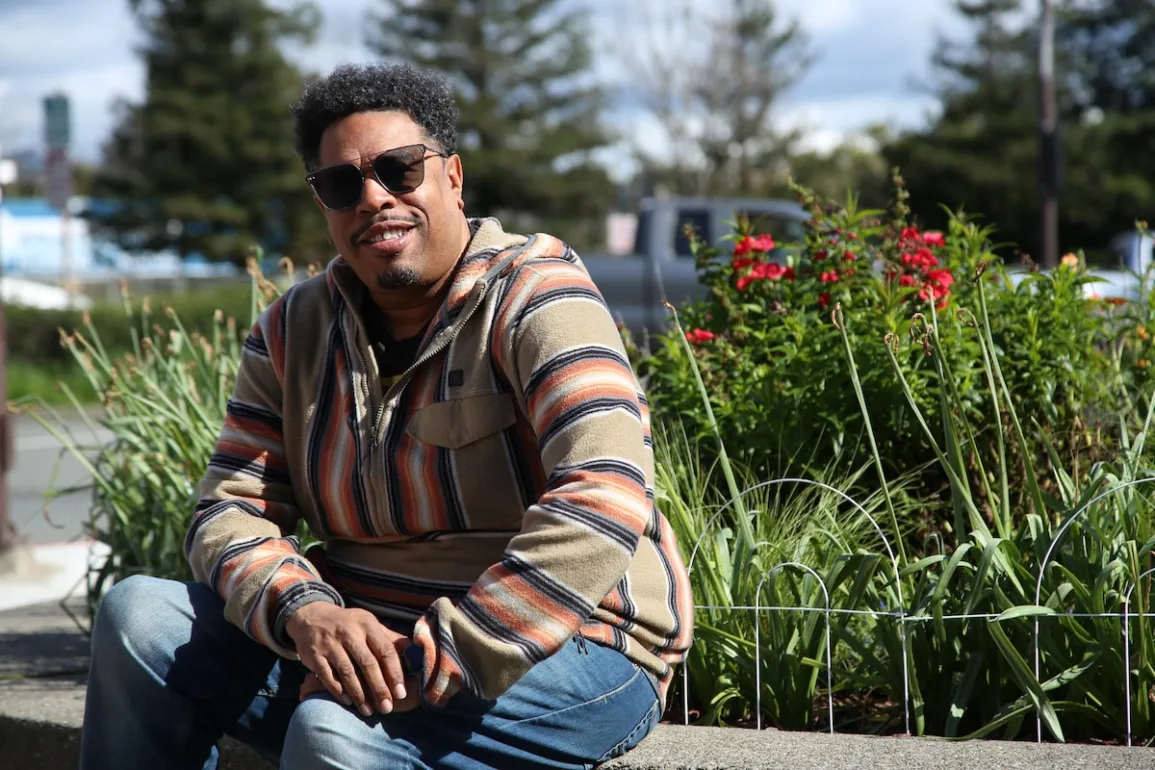
Chip Moore, a local leader from Berkeley, Calif., who is a co-chair of the district’s reparations task force.Nathan VanderKlippe/The Globe and Mail
Nearly four years after the murder of George Floyd led to demands for bold new action against racism in the United States, proponents of those changes are struggling against a resurgent backlash to measures intended to promote diversity and racial equity.
But in a California town synonymous with historical demands for Black empowerment, local leaders are exploring a new way to expand the boundaries of racial reconciliation. The Berkeley Unified School District, which oversees 20 public schools on the eastern shore of San Francisco Bay, wants to deliver reparations to African-American members of its community.
A task force created by the school district is weighing questions such as who should receive reparations, what they should receive and how the district should pay. Among the options being considered by the task force is pushing local voters to approve a new parcel tax for financing cash reparations payments, an idea with some school board support.
The effort is being driven by community members who see the school district as an institution more capable of taking action on the issue than higher levels of government.
Reparations were once conceived of as a way to compensate the descendants of African slaves. In Berkeley, the term has taken on a potentially more expansive meaning, with discussions touching on whether people affected by more modern policies – such as school segregation, neighbourhood redlining and economic imbalances that have eroded the city’s Black population – should also be eligible.
“The word reparations means to make whole, and the discussions that we’re having are, ‘How do we do that? Where does that start? And who is responsible?’” said Chip Moore, a local leader who is a co-chair of the district’s reparations task force. It’s a question, he said, of confronting “America’s deepest sin” and the many ways that sin has echoed through history.
“We’re the tip of the spear. Where Berkeley goes, so goes the nation,” he said.
The Berkeley school district’s work forms one of the most ambitious local attempts in the U.S. to address reparations, a concept now receiving greater attention after decades of advocacy. In California, a report released by a state government reparations task force last year offered “a blueprint for other states and, eventually, the federal government when they perform the critical task of atoning for this nation’s victimization of African Americans.” It recommended a formal apology and monetary reparations to people who can demonstrate lineage that traces back to enslaved African Americans in the U.S., or to free African Americans living in the country before 1900.
It calculated several costs of discrimination against Black people. Those included a home-ownership wealth gap of US$120,295 a person, US$159,792 a person for disproportionate law enforcement during the “War on Drugs” and $966,918 a person for the “total loss in value of life for each African American due to health disparities based on racial discrimination.”
In San Francisco, a reparations committee last year recommended US$5-million payments for each eligible Black adult, the erasure of personal debt, guaranteed income for a quarter-century and homes provided at a cost of $1 a family.
Illinois and New York have both formed commissions to study reparations. California’s legislature is contemplating a series of reparations-related measures that could include a formal state apology, but no widespread cash payments.
Where such discussions have tended to founder is in finding ways to pay.
Nationwide, eliminating the wealth gap for Black descendants of U.S. slavery would cost US$16-trillion, said William Darity Jr., a professor at the Sanford School of Public Policy who has written extensively on reparations. That figure, just under half the value of the country’s total accumulated national debt, should be “the minimum condition that should be associated with a reparations plan,” he said.
It’s a sum so great that no state or local government can hope to handle it, he said.
What’s more, he argues, efforts such as those in Berkeley are “intrinsically incomplete, inconsistent and inequitable” – and can be counterproductive.
Public support for reparations has grown. The idea, endorsed by just 4 per cent of white Americans in 2000, is now backed by some 30 per cent of the population, surveys have shown. But having a lower level of government, such as a school district, examine reparations can be “a detour or distraction,” Prof. Darity said. “The risk is that this will function as a way of deflecting the effort to produce a federal program.”
Others see value in starting small. “Local and state reparations commissions can kind of serve as a domino effect that give us more momentum,” said Kamilah Moore, a lawyer who chaired the California reparations task force.
“There’s a role and place for pretty much almost every institution to have the conversation,” she said.
The effort in Berkeley was backed in part by Adena Ishii, a local resident and activist whose forebears received reparations for the internment of Japanese people during the Second World War. Ms. Ishii was among the signatories of a 2022 letter calling for Berkeley schools to be a pioneer in “true” reparations – unrestricted cash payments – for African-American students.
Adena Ishii, a local resident and activist whose forebears received reparations for the internment of Japanese people during the Second World War.Nathan VanderKlippe/The Globe and Mail
Other communities have looked at similar measures. In Evanston, Ill., for example, local leaders first approved US$25,000 in reparations to each eligible Black resident in the form of housing benefits before last year approving cash payments.
“Reparations are a debt owed, not something that we’re just giving out of the goodness of our hearts,” Ms. Ishii, who is now running for mayor in Berkeley, said during an interview beside a large mural painted near the city’s Malcolm X Elementary School. A filament of scarlet ink passed through the painting’s depictions of south Berkeley, where thousands of Black residents moved after redlining and other discriminatory policies pushed them out of other neighbourhoods.
The school district’s task force has also discussed options outside of cash payments, she said, such as curriculum changes or an official apology.
But, she said, “I don’t want this to be another effort where we just say that we were going to try and do something and then not actually change anything. I think that’s a slap in the face.”
Ka’Dijah Brown, a member of the school board, said she is hoping for reparations that are “life-changing for our Black and African-American students. I think that the entire focus of reparations is to repair the harm.”
But, she said, any money will have to be found outside of the school budget. A statewide poll last year found 59 per cent of Californians opposed cash reparations payments.
Jennifer Shanoski, Ms. Brown’s school board colleague, said she would support a parcel tax if the task force recommends it. But, she said, “I don’t expect that if we put it on the ballot tomorrow it would simply pass.” Still, it’s worth the effort to win support, she said.
“I don’t think that reparations as a cash payment alone is going to be restorative,” she said. “I think it does have to go along with people really understanding why – and agreeing to the commitment that is associated with that.”
Berkeley schools have taken other steps to minimize systemic discrimination. The district boasts it was the first in the country to desegregate without a court order, and the first to create a high-school African-American studies department. It eliminated catchment zones to balance the student body at each school.
Even so, district data show that just 22 per cent of Black students meet standards for math, and 29 per cent for English language arts (the district wants to roughly double those percentages). A Stanford University study published last year showed Berkeley Unified had the second-worst achievement gap among large U.S. school districts when comparing white students with Asian, Black and Latino students.
“Program after program has not done much” to make things better, said Margot Dashiell, 82, who attended Berkeley schools in the 1950s. She went on to study at UC Berkeley, where she participated in the Afro-American Association, which helped establish the Black Panther Party.
“Reparations makes sense, I would say, in the form of enhanced services,” she said, suggesting tutoring, enrichment or even stipends for rent “so families aren’t so taxed by working extra jobs.”
She is nonetheless skeptical it will happen. She has worked on local programs for supportive housing, and has seen resistance to ideas like a right to return for former Black residents of Berkeley forced out by past discriminatory policies. It is inconceivable to her that people would agree to compensation for past wrongs.
“I cannot imagine Berkeley voting for reparations,” she said.



